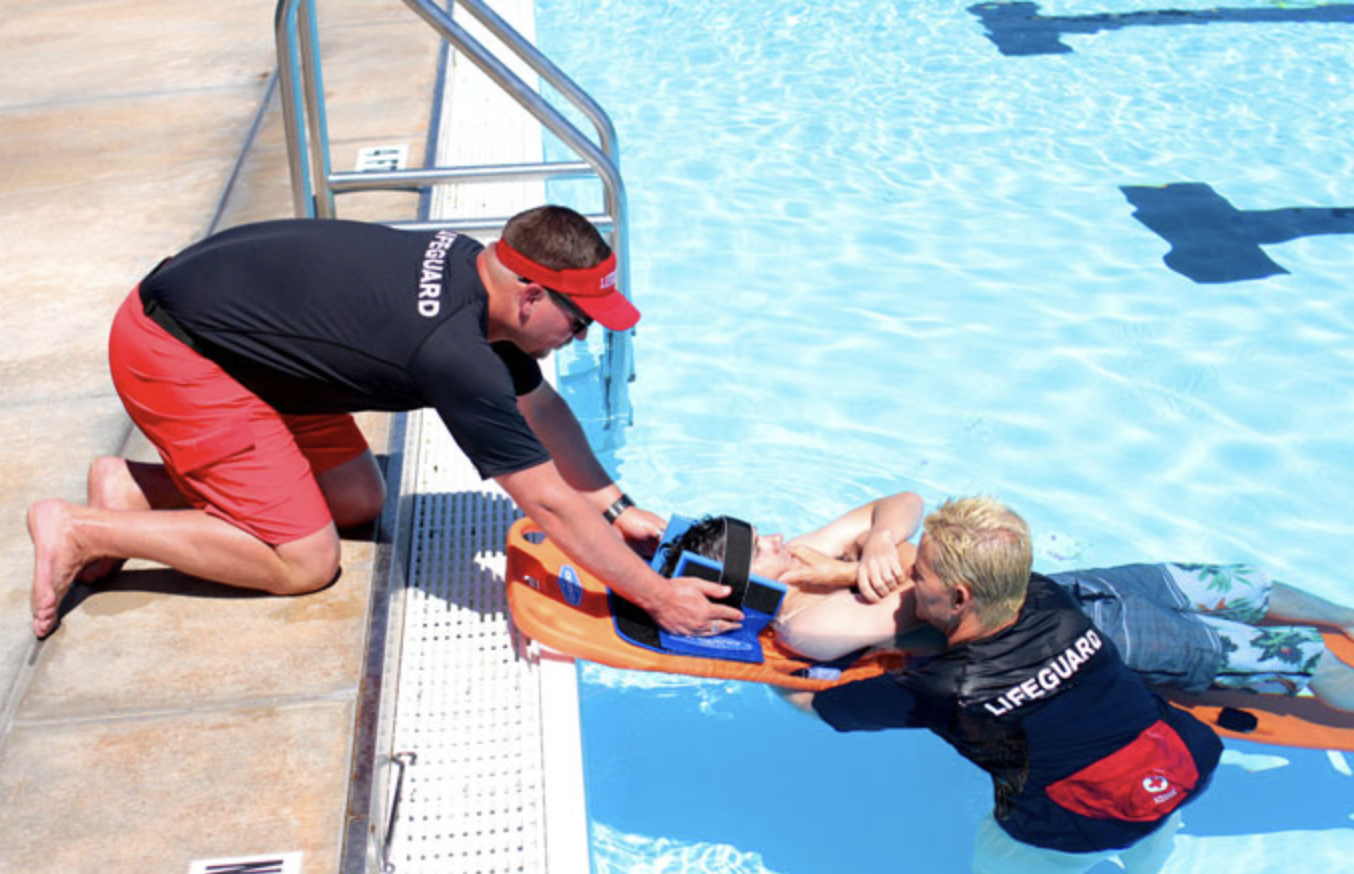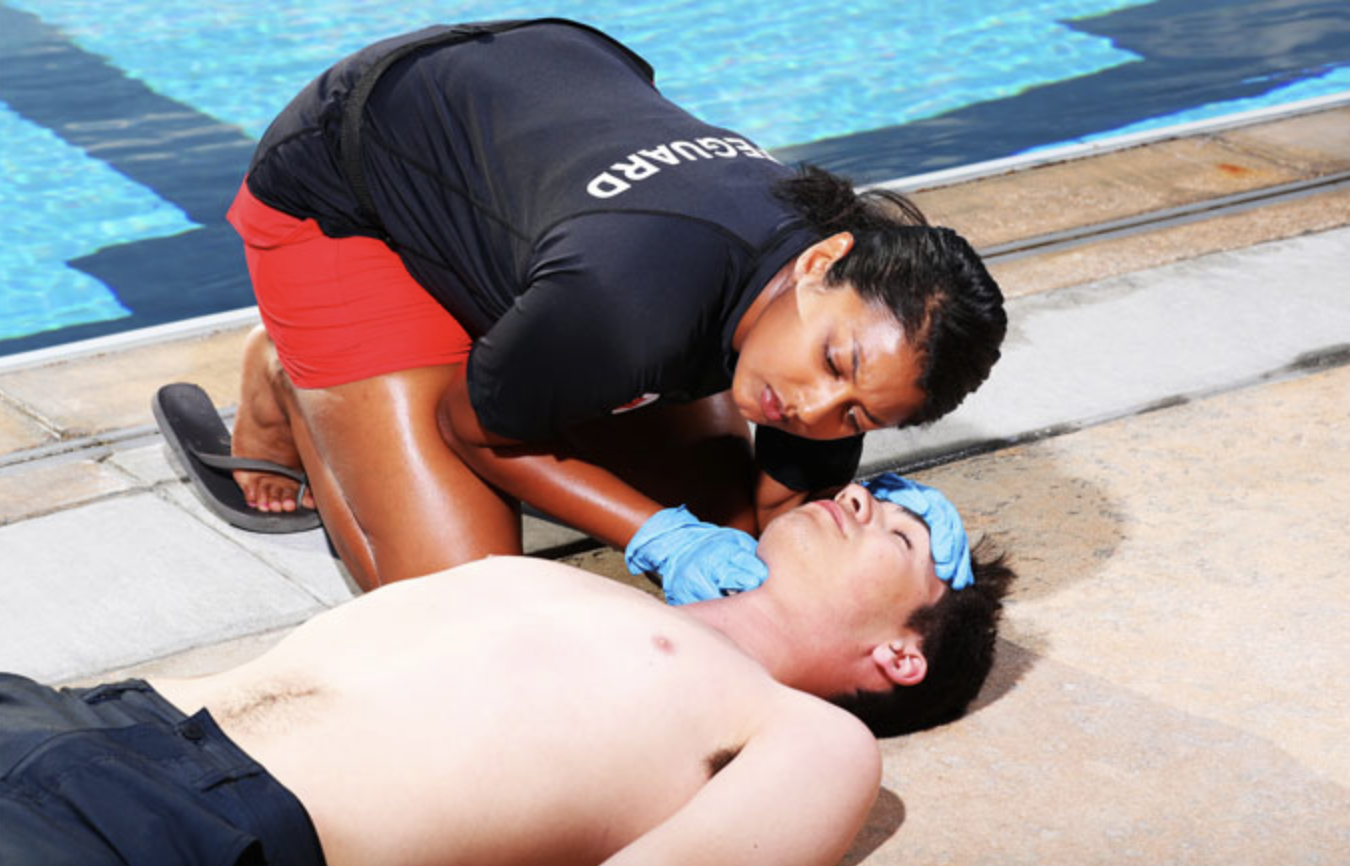Interested in Becoming a Lifeguard?
Earn your lifeguarding certification from the American Red Cross with Instructor Jacob MacGibbon at Putnam Aquatics Center. Our course reflect the latest techniques based on science and best practices to ensure that you are properly trained and prepared for emergencies in and around the water.
To register: Email Jacob MacGibbon at jake@macgibbonconsulting.com or call 386-937-5077.
Upcoming Dates:
May 3rd and 4th
Time: 8 am - 8 pm
Course Fee: $285 (discuss billing/payment in the registration email or phone call). Recertification class options available for current lifeguards.
Courses and Materials
Red Cross training provides participants with flexible training options, improved tools and resources. Our in-person training has a strong focus on practicing the skills needed to prepare, respond and prevent emergencies. Course materials, including a complementary eBook, includes skill videos for lifeguards to review and refresh during and after training.
A variety of Red Cross aquatic courses cover everything from Lifeguarding, Lifeguard Management, to swim lessons and water safety. The curriculum to become a certified lifeguard has been recently updated and developed under the guidance of the American Red Cross Scientific Advisory Council, a group of nationally recognized experts that ensures all information provided offers the latest science and best practices.
Each student must purchase and bring their own reusable pocket mask to the in-person training session. Pocket masks may be purchased through any vendor. You can purchase through American Red Cross store at https://www.redcross.org/dw/image/v2/BBRM_PRD/on/demandware.static/-/Sites-PhysicalProductCatalog/default/dw1d19068f/Images/training-supplies/cpr-masks-and-face-shields/765420-adult-child-cpr-mask-with-o2-inlet-infant-cpr-mask-soft-case.jpg?sw=1350&sh=1000&sm=fit&sfrm=jpg or you can also purchase them through Amazon: https://a.co/d/8nBYrRF
Flexible Training
Whether you prefer training in a classroom only in-person environment or the flexibility of blended learning (online courses followed by Instructor-led classes), the Red Cross Lifeguarding Certification is the trusted leader in lifeguard and aquatic training and accepted nationwide.
Prerequisites for lifeguarding
Age: Students must be at least 15 years old by the last day of class.
Skills: All lifeguarding participants must complete the required swimming skills prerequisite prior to taking. The prerequisite skills assessments include a swim-tread-swim sequence.
Throughout the course, participants will learn and be evaluated on knowledge and skills related to lifeguarding, water rescues, extrications, CPR and AED and First Aid.
Lifeguard Skills and Characteristics
Aside from basic lifeguard skills, other lifeguard skills for your resume, like lifeguard leadership skills, can add value to your role, prevent accidents, and be the difference to save someone’s life.
Communication: Lifeguards are responsible for communicating with patrons to ensure a safer water environment. This can include answering questions from swimmers and advising others against dangerous activities to prevent injury. Lifeguards communicate not only with children but also adults such as parents and caregivers.
Attention to Detail: Attention to detail is an essential lifeguard skill. Lifeguards must be aware of what’s happening in their zones. They must recognize potentially dangerous situations and work to prevent life-threatening situations to help swimmers and patrons stay safe.
Lifeguard Leadership Skills: You do not have to be the head lifeguard to develop lifeguard leadership skills. No matter what your position, you will be asked to step into a leadership role, working with people of all ages to offer a better, safer water environment. And the longer you work as a lifeguard, the more opportunities you will have to enhance those lifeguard leadership skills.
Role Model: Lifeguards are part of the fabric of our communities. They are looked up to for guidance and support by both children and adults alike. We rely on their skills and guidance both in and out of the water.
Courses & Certification
Red Cross Lifeguarding courses have a modern design to reinforce skills that improve learning outcomes in an engaging and accessible way. Upon successful completion of the Lifeguarding course, you will receive a Lifeguarding with CPR/AED for Professional Rescuers and First Aid certification, which is valid for two years and accepted nationwide.
Created with your schedule and learning preferences in mind, the Red Cross curriculum includes two flexible training formats:
In-person instructor-led
Blended learning combines online learning with in-person sessions where you will practice skills and demonstrate competency.
Recertification Course:
The Lifeguarding Recertification course is designed to refresh your knowledge and skills and recertify you for another two years. To participate in the Lifeguarding Recertification class you must have a current American Red Cross lifeguarding certification, or certification expired by no more than 30 days.
In addition, at the conclusion of the course, participants must successfully complete final skills assessments:
Rotate in-conduct surveillance – rotate out
Timed Single-rescuer CPR Scenario
Multiple Rescuer Response Scenario
Participants are required to take one final written exam consisting of 50 questions and score a minimum of 80%.
Participants who successfully complete the Lifeguarding certification course will be issued one of the following certifications depending on the Lifeguarding course completed. For example, participants that successfully complete the Lifeguarding with CPR/AED for Professional Rescuers and First Aid, will be issued a certification valid for 2 years.
American Red Cross Lifeguarding Manual
The American Red Cross Lifeguarding Manual provides important safety information along with the necessary tools and techniques needed when caring for those in and around water. You can purchase the new r.24 American Red Cross Lifeguarding Manual on the Red Cross Store. This manual has been designed to reinforce key points from the class to simplify learning and understanding. Along with enhanced graphics and imagery, students are provided skill sheets and practical scenarios to support learning. From the most basic of water safety questions to critical assessments of emergency situations, the Lifeguarding Manual is a core resource. Available in digital and print formats. A complimentary Lifeguarding participant manual eBook will also be available to registered class participants.
About the Red Cross Lifeguarding Manual
From the responsibilities of being a professional lifeguard to injury prevention and First Aid skills, our lifeguarding manual is designed to be an informative guide with useful resources and tips you will utilize throughout your career. It is the required in-class reference tool as well as a study guide and valuable reference tool long after your certification is completed. The manual covers the following topics:
Being a Professional Lifeguard
Facility Safety
Effective Surveillance and Scanning
Preventative Lifeguarding
Responding to Emergencies
Water Rescues
Emergency Care Foundational Concepts Ventilations and Airway Management
CPR and AED
First Aid
Head, neck and spinal injuries
The scientific content and evidence within the American Red Cross Lifeguarding program is consistent with the American Red Cross Aquatic Guidelines and Best Practices and the most current science and treatment recommendations from the International Liaison Committee on Resuscitation (ILCOR).



